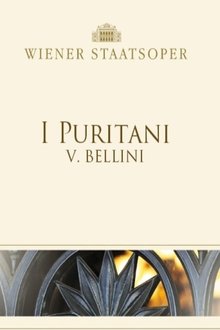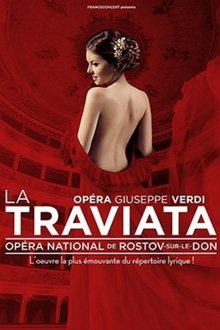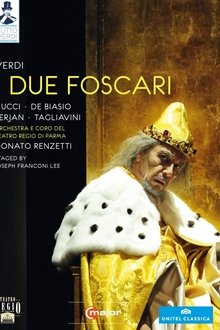Simon Keenlyside smolders dangerously in the title role of Mozart’s version of the legend of Don Juan, creating a vivid portrait of a man who is a law unto himself, and all the more dangerous for his eternally seductive allure. Adam Plachetka is his occasionally unruly servant Leporello. It’s when Giovanni tangles with Donna Anna (Hibla Gerzmava) that things start to unravel, aided by the reappearance of Donna Elvira (Malin Byström), who is determined not to let her seducer go. With Paul Appleby as Don Ottavio, Donna Anna’s eternally steadfast fiancé. Principal Conductor Fabio Luisi leads the Met Orchestra and Chorus.
Related Movies
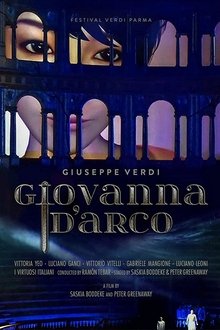
Giovanna D'Arco (2016)
With more than 50 years of experience as film director, Peter Greenaway (Nightwatching, Eisenstein in Guanajuato) combines the worlds of film and opera at the Verdi Festival in Parma, demonstrating what magic those two can do together with an all new approach to Giuseppe Verdi's Giovanna d'Arco, staged and edited by himself and his wife, Saskia Boddeke. The opera's libretto is based on Friedrich Schiller's 'The Maid of Orleans'. It tells the story of the French national hero Jeanne d'Arc, who defends her country against the English troops during the Hundred Years' War. Constantly torn between her humble roots, her love for King Charles VII and her heavenly task to fight for France, she gains eternal glory by giving her life in the final, victorious battle against England.

The Cunning Little Vixen (2003)
An adaptation of Leos Janacek's opera Prihody Lisky Bystrousky (1925), based on the novel Liska Bystrouska by Rudolf Tesnohlidek. It follows the life of Sharp-Ears, a fox who is captured by a forester as a cub and raised in his home prior to escaping back into the forest.
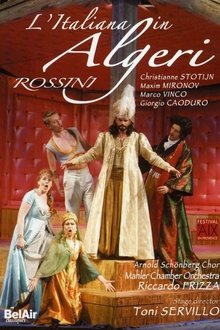
Rossini: L'Italiana in Algeri - Festival d'Aix-en-Provence (2007)
Live performance, Festival d'Aix-en-Provence, July 2006. 'L'italiana in Algeri' (English: 'The Italian Girl in Algiers') is an operatic dramma giocoso in two acts by Gioachino Rossini to an Italian libretto by Angelo Anelli, based on his earlier text set by Luigi Mosca. It premiered at the Teatro San Benedetto in Venice on 22 May 1813. The music is characteristic of Rossini's style, remarkable for its fusion of sustained, manic energy with elegant, pristine melodies.
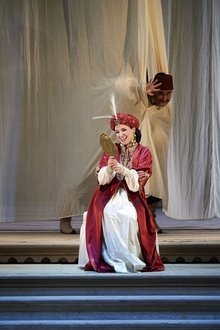
L'Italiana in Algeri (2015)
"This is Vienna State Opera live at home". April 2015. 'L'italiana in Algeri' (English: 'The Italian Girl in Algiers') is an operatic dramma giocoso in two acts by Gioachino Rossini to an Italian libretto by Angelo Anelli, based on his earlier text set by Luigi Mosca. It premiered at the Teatro San Benedetto in Venice on 22 May 1813. The music is characteristic of Rossini's style, remarkable for its fusion of sustained, manic energy with elegant, pristine melodies.
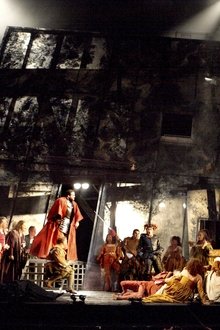
Rigoletto (2017)
An outsider—a hunchbacked jester—struggles to balance the dueling elements of beauty and evil that exist in his life.
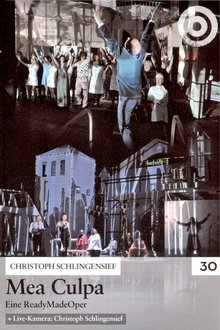
Mea Culpa – A ReadyMadeOpera (2009)
In Mea Culpa, Christoph Schlingensief blurs a delicate line: he ignores the threshold that separates the healthy from the sick. By making his cancer the subject of an opera, premiering on the largest German-speaking theater, he is putting the art district under pressure: a wonderful institution like the Burgtheater must use its artistic resources lavishly to reveal the entire "truth" about us humans. At the end of the day, when the scenery on Janina Audick's revolving stage has finally come to rest, when Isolde's last Liebestad has been sung enchantingly beautifully by Elfriede Rezabek and indescribable jubilation breaks out, then Schlingensief is completely alone with his illness.
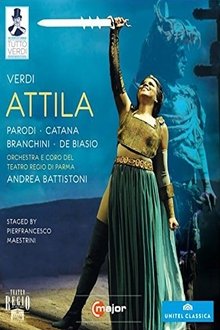
Attila (2010)
Part of Tutto Verdi series - Attila (2010) Parma. 'Attila' is an opera in a prologue and three acts by Giuseppe Verdi to an Italian libretto by Temistocle Solera, based on the 1809 play 'Attila, König der Hunnen' ('Attila, King of the Huns') by Zacharias Werner. The opera received its first performance at La Fenice in Venice on 17 March 1846.
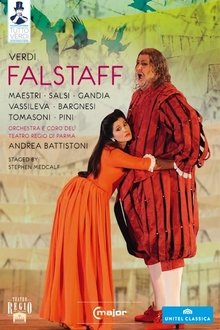
Verdi: Falstaff (Teatro Regio di Parma) (2011)
Part of Tutto Verdi series - Falstaff (2011) Parma. 'Falstaff' is an opera in three acts by the Italian composer Giuseppe Verdi (1813–1901). The libretto was adapted by Arrigo Boito from Shakespeare's 'The Merry Wives of Windsor' and scenes from 'Henry IV, parts 1 and 2'. The work premiered on 9 February 1893 at La Scala, Milan
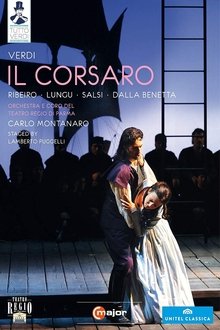
Il corsaro (2008)
The caption on the DVD sleeve reads “This Is how Verdi should be played!” and I could not agree more. The trio of principals: Ribeiro, Lungu, and Dalla Benetta , offer youthful exhuberance and intensity, good looks and glorious voices. The rest of the cast is equally good. Superb conductor, traditional production, great staging. Anf of course, Verdi’s exquisite music. It has renovated my faith in the totality of the Verdi canon, not only its most performed titles.
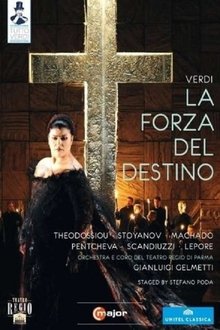
Giuseppe Verdi : La forza del destino (2013)
Donna Leonora, daughter of the Marquis of Calatrava, is preparing to flee secretly with her lover Don Alvaro (son of the Viceroy of Mexico and an Inca princess). The Marquis enters unexpectedly. Alvaro hesitates to raise his weapon against his lover's father and throws his pistol. As he falls, the pistol fires and the Marquis is mortally wounded. As he dies, he curses his daughter. Don Carlo di Vargas, Leonora's brother, decides to avenge the death of his sister and her fiancé. In the turmoil of the chase, Leonora and Alvaro lose each other... Live recording made on 2 and 5 February 2011 at the Teatro Regio in Parma. The libretto by Francesco Piave is based on a play by Ángel Saavedra (1791 - 1865), Duke of Rivas, ‘Don Álvaro o la Fuerza del sino’ (1835). The plot of this romantic drama is based entirely on coincidence, chance and unexpected encounters. In a word, fate.
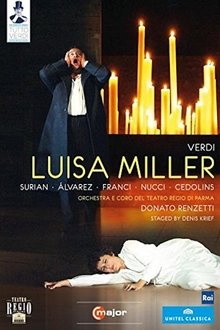
Luisa Miller (2007)
As the release of the ‘Tutto Verdi’ series from the Teatro Regio progresses, one has begun to have fears that the later Verdi operas will fail to measure up to the standards that have been set on DVD by productions from international houses across the globe. The issues of the early and middle period Verdi works have been welcome, because these pieces are so rarely encountered in the opera house; but with Macbeth and Luisa Miller we are coming to operas that have been performed by major artists in major productions with superb orchestras and conductors.
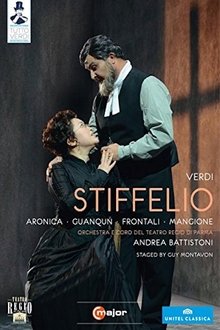
Stiffelio (2012)
Part of Tutto Verdi series - Stiffelio (2012) Parma. 'Stiffelio' is an opera in three acts by Giuseppe Verdi, from an Italian libretto by Francesco Maria Piave. The origin of this was the novel “Le pasteur d’hommes”, by Émile Souvestre, which was published in 1838. This was adapted into the French play 'Le pasteur, ou L'évangile et le foyer' by Émile Souvestre and Eugène Bourgeois. That was in turn translated into Italian by Gaetano Vestri as 'Stifellius'; this formed the basis of Piave's libretto.
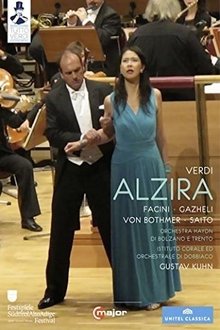
Alzira (2012)
Part of Tutto Verdi series - Alzira (2012) Dobbiaco. This is a concert performance. Alzira is an opera in a prologue and two acts by Giuseppe Verdi to an Italian libretto by Salvatore Cammarano, based on the play Alzire, ou les Américains by Voltaire. The first performance was at the Teatro San Carlo, Naples, on 12 August 1845.
